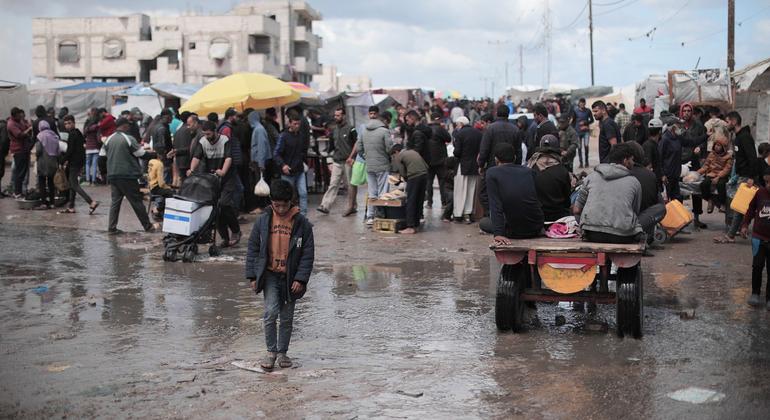Hamas’s supreme leader, Ismail Haniyeh, has reportedly confirmed the militant group’s acceptance of what they stated were Israel’s ceasefire terms in a phone call with Qatar’s Prime Minister and a senior Egyptian minister. This comes after negotiations between the two countries, who have been leading efforts to end the ongoing conflict. However, Israeli leadership has expressed that the deal offered by Hamas falls short of their demands to end the fighting. Israel has stated that they will send a delegation to continue ceasefire talks and will also continue their operations in Rafah in the meantime.
UN Secretary-General António Guterres has reiterated his call for both sides to make an agreement to stop the present suffering. He expressed deep concern over indications of a large-scale military operation in Rafah, emphasizing the importance of protecting civilians in accordance with international humanitarian law. Guterres urged both the government of Israel and the leadership of Hamas to go the extra mile to reach an agreement, stating that this opportunity cannot be missed. He warned that a ground invasion in Rafah would have devastating humanitarian consequences and destabilize the region.
Following news of an Israeli evacuation order in Rafah, the UN agency for Palestine refugees, UNRWA, stated that an Israeli offensive in Rafah would lead to more civilian suffering and deaths, with devastating consequences for 1.4 million people. UNRWA announced that they would not be evacuating and would continue providing lifesaving aid to those in need in Rafah. The UN Children’s Fund (UNICEF) also warned that a military besiegement and ground incursion in Rafah would pose catastrophic risks to the 600,000 children sheltering there, many of whom are highly vulnerable and on the edge of survival.
UNICEF highlighted the increased violence in Rafah and the potential dangers of evacuation corridors that may be mined or littered with unexploded ordnance. They stated that any military move on Rafah would likely result in high civilian casualties and the destruction of basic services and infrastructure needed for survival. UNICEF emphasized the importance of protecting children and ensuring their safety amidst the conflict. The organization called for an end to the violence and urged all parties to prioritize the well-being of civilians in Rafah.
The situation in Rafah remains precarious, with ongoing negotiations between Hamas and Israel and concerns about a potential ground invasion. The UN continues to call for an agreement to end the suffering and protect civilians in accordance with international humanitarian law. The focus is on preventing further escalation of violence and ensuring the safety and well-being of vulnerable populations, particularly children, who are at risk of harm in the conflict-stricken region. Efforts are being made to address the humanitarian crisis and provide aid to those in need in Rafah.









